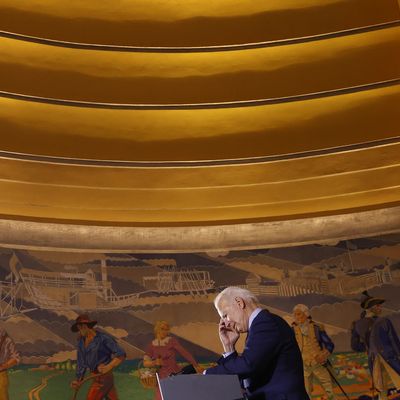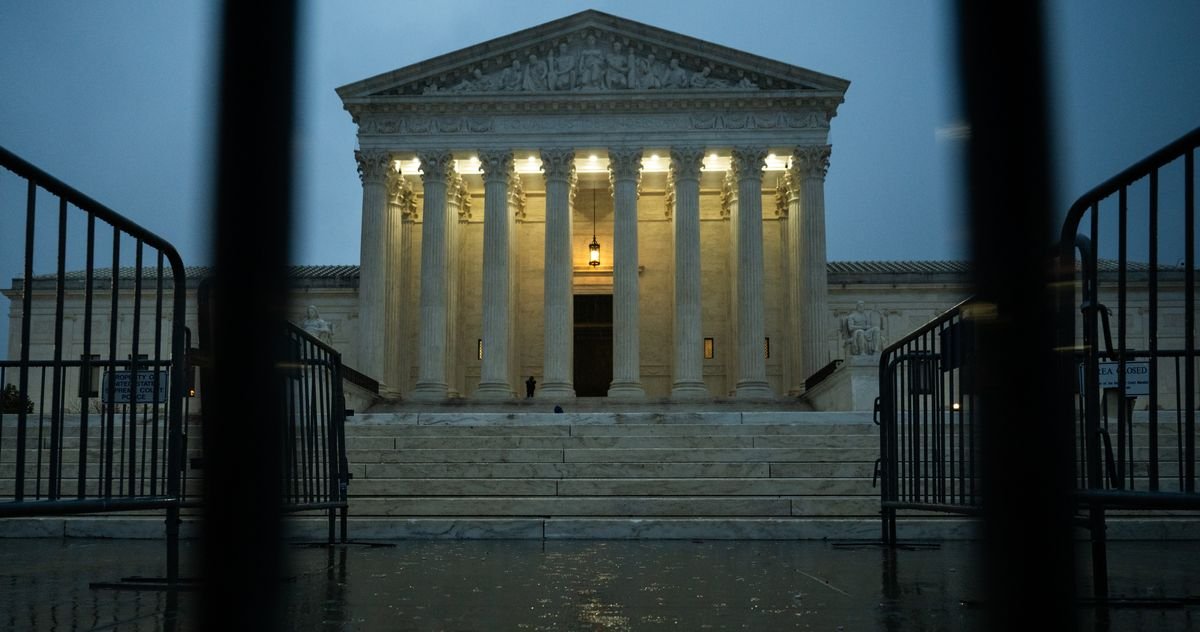
Could Biden Be Left Off the Ohio Ballot in November?

Joe Biden campaigns in Ohio in 2020.
Photo: Chip Somodevilla/Getty Images
Earlier this year, there was a brouhaha over efforts in certain states (notably Colorado, Illinois, and Maine) to disqualify Donald Trump from 2024 primary or general-election ballots under the 14th Amendment’s ban on federal office holding by insurrectionists. In March, a unanimous U.S. Supreme Court smacked down that idea, which also short-circuited threats of retaliation against Joe Biden in red states.
But a more obscure ballot-access problem has continued to bug the Biden campaign: general-election qualification deadlines in two states (Alabama and Ohio) that fell before he will be officially renominated at the relatively late 2024 Democratic National Convention in Chicago from August 19 to 22.
In Alabama, where the deadline had to be deferred in 2020 to accommodate Trump, the Republican-controlled legislature unanimously provided the same favor to Biden earlier this month. Ohio also adjusted its ballot deadline in 2012 and in 2020, but this year, the no-brainer adjustment has gotten snarled with another issue in a special session called by Republican governor Mike DeWine, as ABC News reports:
The Ohio Senate on Tuesday is considering two separate bills — one to address Biden’s ballot access and one introduced by Ohio Senate Republicans that would bar foreign sources from funding ballot-issue campaigns. The latter is a direct response to GOP objections to the “Issue 1” campaign last year when Swiss billionaire Hansjörg Wyss helped fund a ballot measure that enshrined abortion rights in the Ohio Constitution.
Democrats have objected to Ohio Republicans’ efforts to vote to push the two issues through during the special session, arguing that the GOP has made a legislative fix to address ballot certification — a measure that has been granted to both parties in previous election cycles — a political one.
Not waiting to see whether Ohioans can overcome this conflict, the Democratic National Committee has announced a contingency plan whereby Biden can formally be nominated before Democrats convene in Chicago using the virtual roll-call process they deployed during the COVID-restricted 2020 convention, as the Associated Press explains:
The Democratic National Committee on Tuesday did not say when the virtual roll call will take place, but it is expected in the weeks after the committee’s rules and bylaws committee votes to propose changes to the roll call process. That committee vote is scheduled for June 4.
“Joe Biden will be on the ballot in Ohio and all 50 states, and Ohio Republicans agree. But when the time has come for action, they have failed to act every time, so Democrats will land this plane on our own,” Jaime Harrison, the Democratic National Committee chairman, said in a statement. “Through a virtual roll call, we will ensure that Republicans can’t chip away at our democracy through incompetence or partisan tricks and that Ohioans can exercise their right to vote for the presidential candidate of their choice.”
What Harrison did not say is that a virtual roll call may eliminate one opportunity for the planned protests in Chicago over Biden’s Gaza policies. Indeed, the quick leap to a virtual roll call is best understood in the context of other discussions of virtual and/or decentralized proceedings by Democrats to reduce the odds of high-profile protests.
It’s unclear now whether the virtual plan will be canceled if Ohio’s legislature does the right thing by assuring Biden’s ballot access. The truth is that this is all shadowboxing. Trump won the Buckeye State by eight points in both 2016 and 2020, so if Biden is in a position to carry Ohio (much less Alabama!) in November, he’s probably winning the overall election by a landslide.
There are entirely separate (perhaps more significant) battles underway involving ballot access for minor parties and independent candidates (both Robert F. Kennedy Jr. and Cornel West). So we may not know for a while exactly who is on the ballot where. But one way or another, Biden and Trump will definitely face off in all 50 states, and perhaps Biden can avoid a messy and contentious convention in the process.




